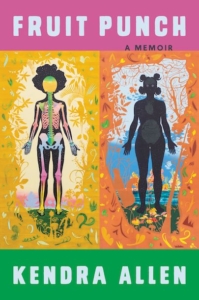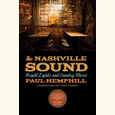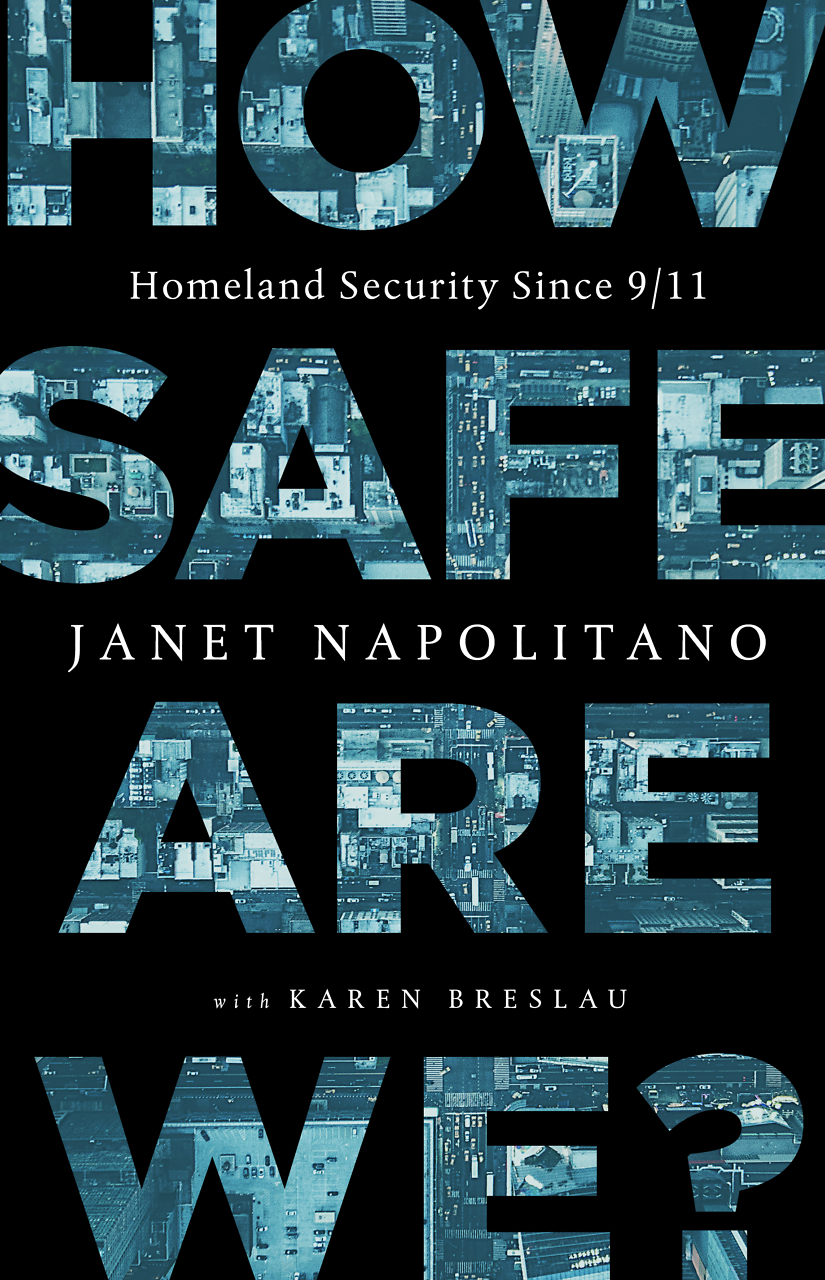Sitting in the Memories
Kendra Allen’s unconventional memoir reckons with trauma and personhood
Fruit Punch opens with a caveat from author Kendra Allen that you should put the book down if it gets too heavy for you.
 Allen writes, “I know we tend to use words like trigger and trauma loosely, but you know what you know and what you feel, so when you know what it is you’re feeling — don’t force yourself to sit in my memories with me if it causes even a little bit of pain or suffering. Please put yourself first.” Before she even gets to her story, Allen is working to make you feel a bit safer while reading it.
Allen writes, “I know we tend to use words like trigger and trauma loosely, but you know what you know and what you feel, so when you know what it is you’re feeling — don’t force yourself to sit in my memories with me if it causes even a little bit of pain or suffering. Please put yourself first.” Before she even gets to her story, Allen is working to make you feel a bit safer while reading it.
Fruit Punch explores how a young Black child can feel both overly protected and overwhelmingly unsafe at the same time. Allen’s experiences are delivered out of order, with time made less linear and more the way we remember things, in bits and pieces and half memories. She jumps from toddlerhood to teen years to adult life and back.
Allen writes about being sexually assaulted by a young man in her family when she was asleep as a child, a very confusing event that didn’t match the types of assault she had been warned about. As this story emerges on the page, she grapples with how it has affected her sense of identity and personhood. She outlines how her own half memories caused her not to trust herself or anyone else. Though her family was tight-knit, her childhood was also volatile apart from the assault. Late in the memoir, when she reveals the event to her mother, the focus is on what didn’t happen to Allen rather than on the behavior of the perpetrator.
 Often sexual assault is portrayed as a moment in someone’s life, isolated to the physical experience. Allen’s memoir shows that these traumas are ongoing, that they can continue to wreak havoc on a person’s understanding of who they are. She discusses family ties and bloodlines; “fruit punch” is used as a euphemism for getting her first period. There are tough moments that come with reading about something like assault when it is conveyed in a nonsequential way, but it feels more real because those scenes arrive like waves when you least expect them, just as we are sometimes caught off guard by our own troubling memories.
Often sexual assault is portrayed as a moment in someone’s life, isolated to the physical experience. Allen’s memoir shows that these traumas are ongoing, that they can continue to wreak havoc on a person’s understanding of who they are. She discusses family ties and bloodlines; “fruit punch” is used as a euphemism for getting her first period. There are tough moments that come with reading about something like assault when it is conveyed in a nonsequential way, but it feels more real because those scenes arrive like waves when you least expect them, just as we are sometimes caught off guard by our own troubling memories.
What I love about Allen’s writing is the way it seems to mirror the inside of someone’s brain — equal parts poetry, memory, logic, and the fuzzy spaces in between. This is how she writes about experiencing church as a girl: “They say it’s all spiritual, the work we think we doing here, but it feel like spiritual is code for sexual, which they code in all these rules about worshipping A man. The son. The father. Him. The Perfect, Almighty One.” She moves on to say, “Gods say principles only apply to girls. I don’t like being a girl, cause they never ask if I want a husband or a baby. They gift them to me regardless and sex and love have to mix up like one of my tapes but it sound like jail: all these rules you gotta follow in order to be loved and accepted. All these rules you gotta follow to make God care about you.”
This book differs from a traditional memoir. Allen’s stories aren’t neatly tied with a bow; the messages are more scattered. You don’t get the feeling you are expected to have gathered anything about yourself from reading about her life. It’s hers, after all. If you read a lot of fiction (I read Jesmyn Ward’s lyrical novel Sing, Unburied, Sing right before Fruit Punch), this format of poetry and sometimes disjointed prose can make you forget that the story she’s telling is her own.
If you’ve lived through a sexual assault or been close to someone who has, some aspects of Fruit Punch may be difficult to take. Sitting with Allen’s memories might indeed prove challenging, but the stories of her experience as a Black child and woman are worth what they ask of the reader. And if it all gets too heavy, you can always lay it down until you’re ready to go on.

Amanda Haggard is a freelance writer, editor, and journalist living in Nashville. For the past decade, she’s written about homelessness, books, music, politics, food, and everything in between. She is the co-editor of Nashville’s street newspaper The Contributor.


